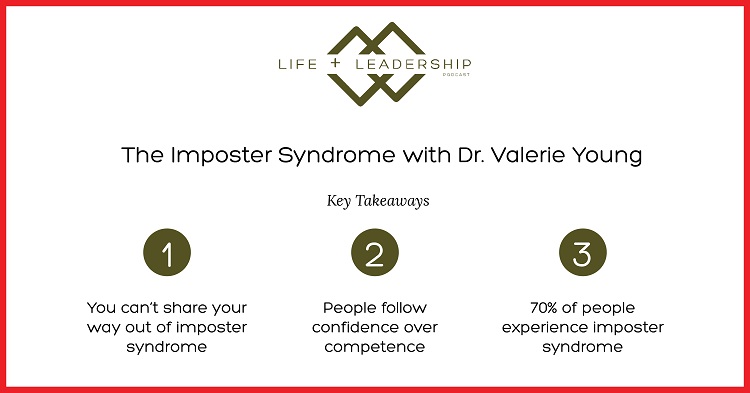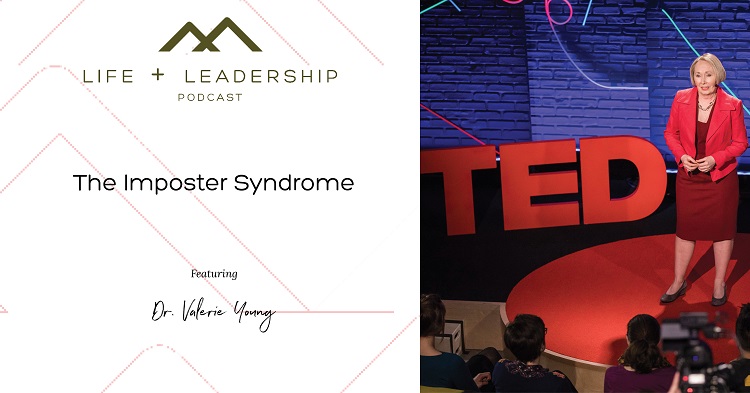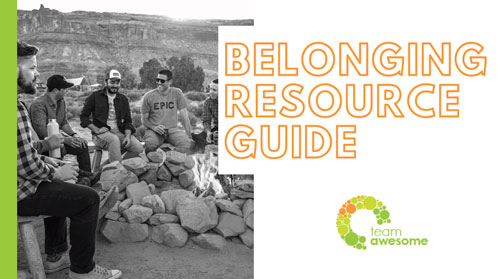Maya Angelou famously said, “I have written 11 books, but each time I think, ‘Uh oh, they’re going to find out now. I’ve run a game on everybody, and they’re going to find me out!’” This phenomenon of feeling less capable or talented than people think—despite ample evidence to the contrary—is known as imposter syndrome, and it impacts 70% of the population. So, how does imposter syndrome impact our behavior? And what can we do about it?
Today, we’re joined by Dr. Valerie Young, the internationally recognized authority on imposter syndrome and author of the award-winning book, The Secret Thoughts of Successful Women: Why Capable People Suffer from the Imposter Syndrome and How to Thrive in Spite of It. Valerie’s career advice has been cited in media outlets such as BBC Radio, CNN Money, The Wall Street Journal and O Magazine, just to name a few. She has been invited to speak at 90-plus universities around the globe and for prestigious corporate clients such as Boeing, Facebook, and Microsoft.
Valerie begins by defining imposter syndrome and explaining how it manifests differently in men and women. She walks us through the ‘perfectly good reasons why you might feel like a fraud,’ sharing the social and situational factors that fuel self-doubt. Valerie also discusses the concept of stereotype threat and offers examples of how being an outlier influences our behavior. Listen in for insight around the coping mechanisms we use to protect ourselves from imposter syndrome and learn how to reframe imposter thoughts and replace them with new ways of thinking!

Themes explored in this week’s episode:
- How Valerie defines imposter syndrome and her personal experience with feeling like an imposter
- The perfectly good reasons why you might feel like a fraud
- How imposter syndrome manifests differently in men vs. women
- Examples of icons who own up to imposter syndrome and why creatives are more susceptible
- Why it’s crucial for leaders to understand imposter syndrome and how it impacts our behavior at work
- How people who don’t feel like imposters think differently about competence, failure and fear
- How people with imposter syndrome minimize or discount their accomplishments
- The concept of stereotype threat and how it affects our behavior
- The connection between imposter syndrome and overachieving or overproducing
- How to use Valerie’s list of rights as a foundation for managing imposter syndrome
Resources from this episode:
- Connect with Valerie at https://impostersyndrome.com/
- Follow @ValerieYoung on Twitter or Facebook
- Buy Valerie’s book The Secret Thoughts of Successful Women
- Read the Clance & Imes paper on the Imposter Phenomenon
- Access Valerie’s blog post on Michelle Obama
- Explore the research around the Dunning-Kruger Effect
- Read Betty Rollin’s article in The New York Times
- Look at Claude Steele’s work on stereotype threat
- Watch Valerie’s TED Talk on imposter syndrome
We would love to hear from you! Have an idea for a podcast or a question you want us to address? Interested in additional support, resources and workshops? Here are all the ways you can interact with us!
- Tweet us! @tegantrovato and @TeamAwesomeMKE
- Email us: tegan@BrightArrowCoaching.com and Katie@TeamAwesomeCoaching.com
- Follow us on Facebook @BrightArrowCoaching and @TeamAwesomeCoaching
- Follow us on Instagram @TeganTrovato and @katie_rasoul
- Connect with us on LinkedIn: Tegan Trovato and Katie Rasoul
- Download free tools and sign up for our newsletters, events and workshops by visiting: https://www.brightarrowcoaching.com/ and https://www.teamawesomecoaching.com/
Quotes from the episode:
“I describe [imposter syndrome] as this secret, core belief … that deep down inside, essentially I’m not as bright or capable or competent or talented as other people seem to think that I am, and this is despite evidence to the contrary.”
“There are certain organizational cultures that can fuel self-doubt.”
“The fewer people who look or sound like us, for many people it can and does impact how confident we feel, especially if we belong to any group for whom there are stereotypes about competence. We’re going to be more susceptible.”
“Women, especially, are more likely to internalize failure, mistakes and criticism and blame ourselves. Men and boys are more likely to externalize and define factors outside of themselves that explain why they failed.”
“Men tend to be more comfortable jumping in and figuring things out as they go along, and women like to know 150% before we dare raise our hand or put ourselves out there.”
“If you work crazy-hard, you’re probably going to be successful. But the question is, at what cost?”
“Talking about [imposter syndrome] is an important first step, but it’s truly just a first step.”
“You can’t share your way out of imposter syndrome.”
“People in a group are more willing to follow the more confident person over the more competent person.”
“The only way to stop feeling like an imposter is to stop thinking like an imposter.”
“If you knew you were entitled to have an off day, to make a mistake, to fall flat on your face, to ask for help, to struggle to master something, there’d be nothing to feel like an imposter about.”
“I always encourage women, go for the big position. You can always change your mind later. But go for it and see how you like being an executive.”



Recent Comments